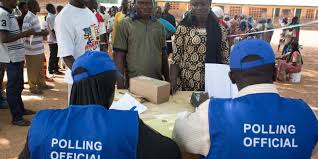Health Misinformation Spreads Online as Cholera Hits Nigerian States

By Quadri Yahya & Grace Adesewa
Since the outbreak of Cholera in some Nigerian States of Lagos, Ogun, Rivers, Katsina, Oyo, Abia, Bayelsa, and Sokoto, information on preventive measures vis-a-vis misinformation has gauged social media platforms.
Hidden in standalone posts and comment sections, social media users have conjured varying hypotheses about the disease which has affected more than hundreds of people and also snatched the lives of at least 40 people.
Per a tally of the National Centre for Disease Prevention and Control, Cholera has spread to at least 33 states, while the country struggles to get a vaccine.
From speculative causes/motives to non-medical prescriptions, viral social media posts pose another hurdle of health misinformation amidst the battle to curtail the spread of the disease.
Another disease to tackle?
Misinformation has emerged as a major threat to cyberspace, potentially polluting online users’ content consumption habits.
In times of critical health issues, the role of social media is a double-edged sword image, with its negative impact undermining efforts to inform the public on measures to curtail widespread.
FactCheckAfrica’s findings revealed that some netizens have concluded that the government announcement of a disease outbreak was an initiative to ‘embezzle’ money or to turn the country upside-down.
A Facebook user, Matthew Olabode expressed this sentiment: “They have started again ooo like covid -19, using the advantage to embezzle money telling us fake stories that make people scared and they won’t show us the cases or victims, neither we won’t hear from the families of the so claim cases record to confirm it’s true.”
Olabode was reacting to a report of an announcement of Cholera resurgence globally by the World Health Organisation.
He is not alone.
Chidiebere Ehieze also added under the comment section: “Lies upon lies, just like COVID, una don come again.”
Despite the 2020 coronavirus disease killing at least 6 million worldwide, and more than 3 thousand recorded deaths in Nigeria, some people still believe it’s a widespread hoax.
Also on X, some social media users, without a proof, made prescriptions for Cholera and also claimed hospitals are conducting experiments with humans.
Misinformation has the potential to exacerbate the spread of the disease as it can manipulate people’s attitude towards preventive measures for Cholera, experts warn.
“The basic cause of cholera is hygiene. Imagine someone now telling somebody that it is a problem of spiritual attack; people will be praying instead of doing sanitation. They will be doing the wrong thing because they are misinformed, and the problem will continue because they are not doing the right thing”, said Dr. Adekunle Ashimi.
The Ogun State Chairman of the Nigeria Medical Association added that the role of media is vital, hence, it should only disseminate factual information.
“The truth is that the world relies on the media for the truth. The media should not be sentimental but dish out the truth as it is. That is what will work.”
Edited by Habeeb Adisa




